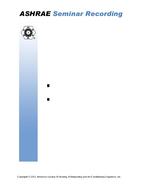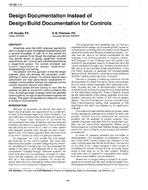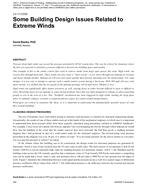Click here to purchase
In order to analyze transient heat transfer process from the theoretical and computational aspects, conduction in the solid phase has to be coupled with the convection heat transfer in the liquid phase and both of these mechanisms are required to be analyzed separately and then in conjugation with each other. The coupling and non-linearity of the governing equations and the complexities of the geometries that contain moving interfaces are among the limitations of the numerical and analytical methods for studying this problem; therefore, experimental methods play a vital role in investigating this problem. Accurate prediction of convection heat transfer is one of the most essential components in designing the thermal energy storage systems. In this numerical study, there are two phases in a rectangular cavity. A Phase Change Material (PCM) which is oleic acid, in a solid phase and a liquid substance which is water. The PCM is located under the water in this cavity. The heat is given to the cavity from the side wall in the form of a constant temperature. When the PCM begins to melt, due to its lower density relative to the water, the displacement of water will be carried out simultaneously with the melted solid, and the water moves downward.
Citation: 7th International Conference on Energy Research and Development
Product Details
- Published:
- 2019
- Number of Pages:
- 8
- Units of Measure:
- Dual
- File Size:
- 1 file , 2.5 MB
- Product Code(s):
- D-2019ICERD7-003


